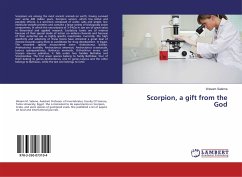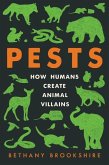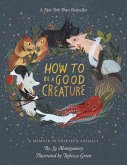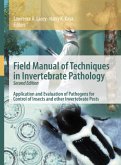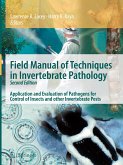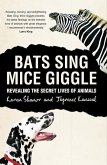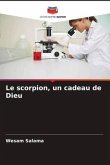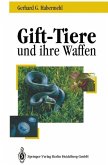Scorpions are among the most ancient animals, having survived over some 400 mlns years. Scorpion venom contains a large variety of biologically active components which have great value in theoretical and applied research. In Egypt, The recorded species encountered were: Androctonus bicolor, A. australis, A. amoreuxi, A.crassicauda, Leiurus quinquestriatus, Buthacus arenicola, Orthochirus innesi, and Scorpio maurus palmatus. Proteomic analysis of venom components can produce a valuable fingerprint that can be used as a useful reference tool in taxonomy and as a complementary method to morphology and behavioral characterization for species identification and classification of related specimens. Total protein contents had the highest value in L. quinquestriatus, A. amoreuxi, and A. australis venom. The Egyptian scorpion L. quinquestriatus has an antimicrobial effect on some microbial strains. LD50 of the same scorpion venom was 0.2µg/g body weight for adult male. Cytotoxicity and apoptosis as well as the allergy induced by the effect of scorpion venom were evaluated by measuring IgE, LDH, and CASP3 levels in serum of male albino mice after 24 hours of IP injection of sublethal doses.
Hinweis: Dieser Artikel kann nur an eine deutsche Lieferadresse ausgeliefert werden.
Hinweis: Dieser Artikel kann nur an eine deutsche Lieferadresse ausgeliefert werden.

